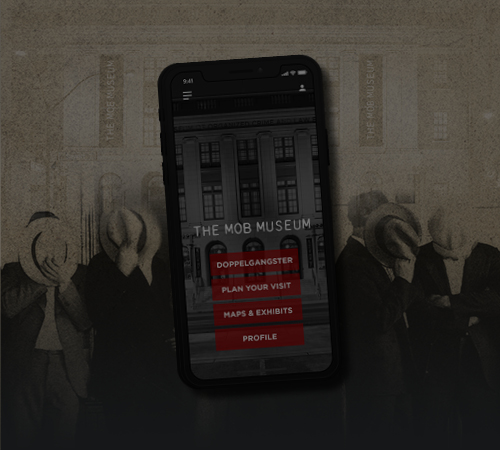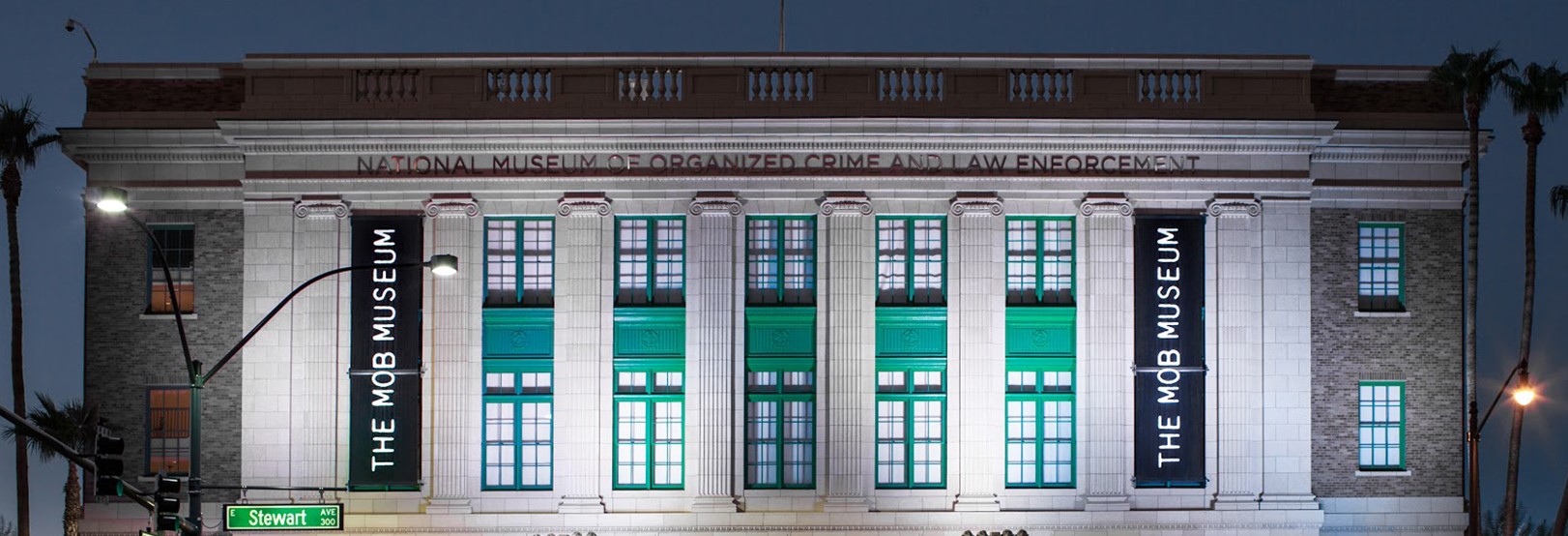
Joe Friday tackled the Los Angeles crime syndicate
Jack Webb’s Dragnet borrowed from the 'Two Tonys' murders in exposing Southern California’s underworld
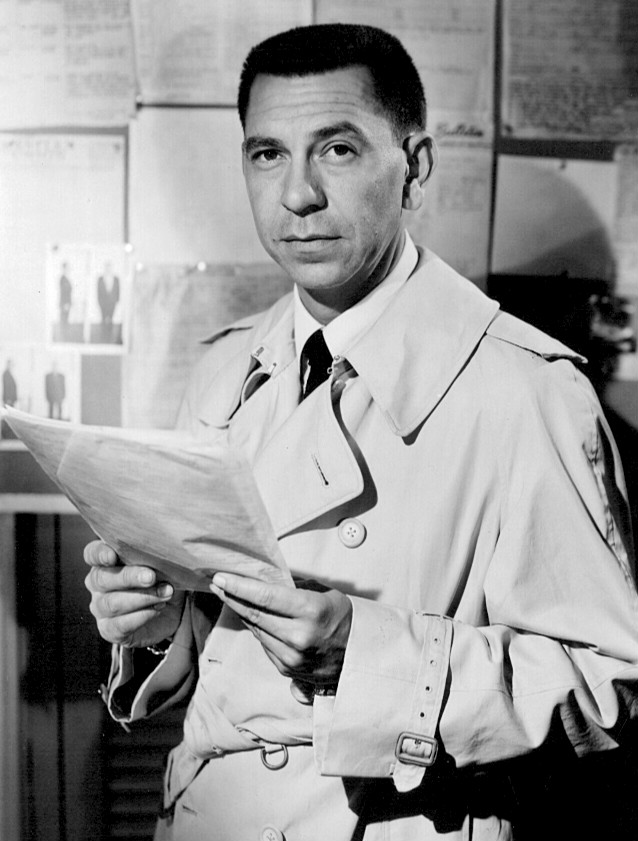
William H. Parker, a hardnosed police chief in midcentury Los Angeles, did not want organized crime in his city. In taking on his list of evildoers, Parker had a broadcast ally, a rising star with a resonant voice originally from the nearby beachside town of Santa Monica.
His name: Jack Webb.
In the mid-1950s, Webb directed and starred in Dragnet, the feature film version of his popular television series using actual crime cases from Los Angeles Police Department files with permission, though the names were changed, as the show’s title narrator explains, “to protect the innocent.” In the TV series and the movie, Webb plays detective Sgt. Joe Friday, badge No. 714.
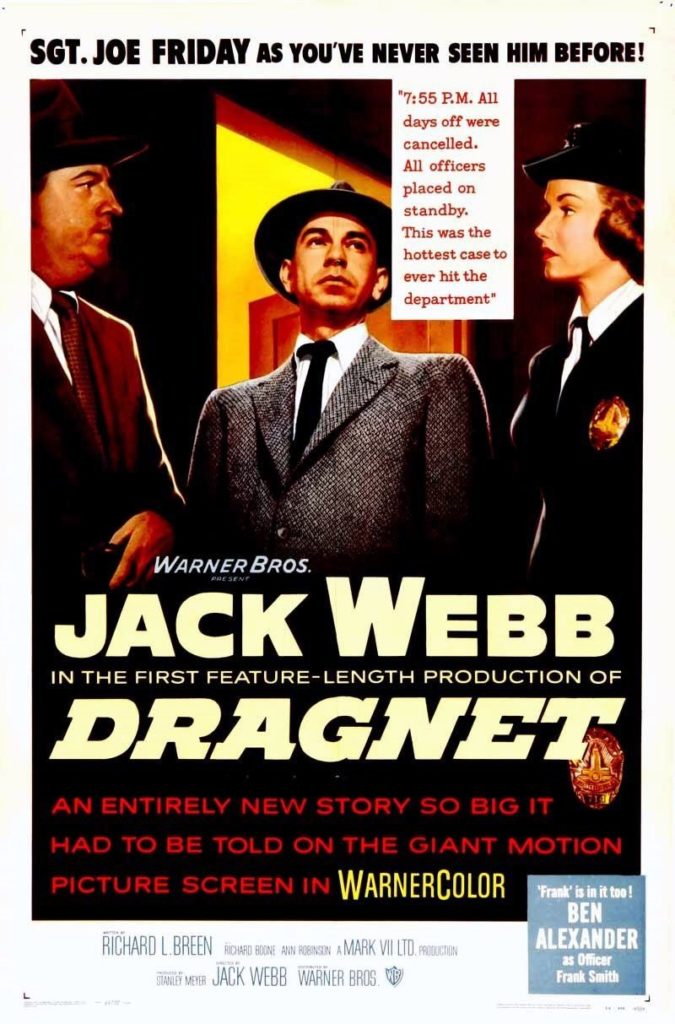
According to author Paul Lieberman, the movie’s plot appears to borrow from a gory Hollywood Mob hit in 1951 known as the Two Tonys murders. Lieberman explores the similarities between that high-profile double slaying and the Dragnet movie in his 2012 book Gangster Squad: Covert Cops, The Mob, and the Battle for Los Angeles. A movie based on Lieberman’s book came out in 2013, also titled Gangster Squad, starring Sean Penn and Emma Stone.
The Dragnet film is an early example in a long line of Mob movies using actual events to build a dramatic storyline. The most recent is Gotti, starring John Travolta as John Gotti, a celebrity crime boss who rose to power in mid-1980s New York. That movie opened nationwide this month.
Another contemporary Mob movie centered on real crime figures, director Martin Scorsese’s The Irishman, is scheduled to be released next year. It is focused on hit man Frank Sheeran, who claimed to have shot former Teamsters boss Jimmy Hoffa to death in 1975.
By the time the Dragnet feature film debuted in September 1954, moviegoers were familiar with the director and star, Jack Webb.
As Lieberman explains it, Webb, the product of a broken home, washed out as a military pilot and took a hardship discharge to care for his mother and grandmother, then became a radio actor on a couple of detective programs featuring lines such as “The street was as deserted as a warm bottle of beer.” Webb also appeared as a cast member in big-screen crime thrillers, including 1948’s He Walked by Night.
In 1949, still not 30 years old, the L.A. City College dropout launched a Friday evening radio program, Dragnet, produced “in cooperation with the Los Angeles Police Department.” Two years later, on December 16, 1951, Dragnet premiered on television, with Webb as the no-nonsense, moralizing detective Sgt. Joe Friday. The show aired until 1959, attracting more than 30 million viewers each week. In the 1960s, the television series reappeared with actor Harry Morgan as Joe Friday’s crime-solving sidekick, resulting in later spinoffs and spoofs, including a 1987 big-screen parody starring Dan Aykroyd and Tom Hanks.
The original Dragnet movie from 1954 was the first film spinoff ever from a television series, according to the TCM Film Archive. In the movie, Sgt. Friday and other plainclothes officers attempt to track down the gangland assassins responsible for killing a syndicate flunky who collected a $500 gambling debt for his boss but kept the money instead of passing it up the line. The crook is blasted to death with a double-barrel shotgun in an open field.
According to Lieberman, that refusal to pass along a gambling debt is one of the similarities between the movie and the Two Tonys case.
The Two Tonys had collected a $3,000 gambling debt from Los Angeles underworld associate Sam Lazes and were expected to pass it up to the syndicate. Instead, they pocketed the money, just like the greedy flunky in Dragnet.
The Two Tonys were Tony Trombino and Tony Brancato, career hoodlums from Kansas City with 46 combined arrests and 17 convictions, ranging from armed robbery to rape.
That crime wave ended after the two robbed Mob-connected operations in Las Vegas and Los Angeles and then ripped off Lazes, according to author Ovid Demaris in the The Last Mafioso, a 1980 book exploring mobster Jimmy “The Weasel” Fratianno’s life and criminal exploits.
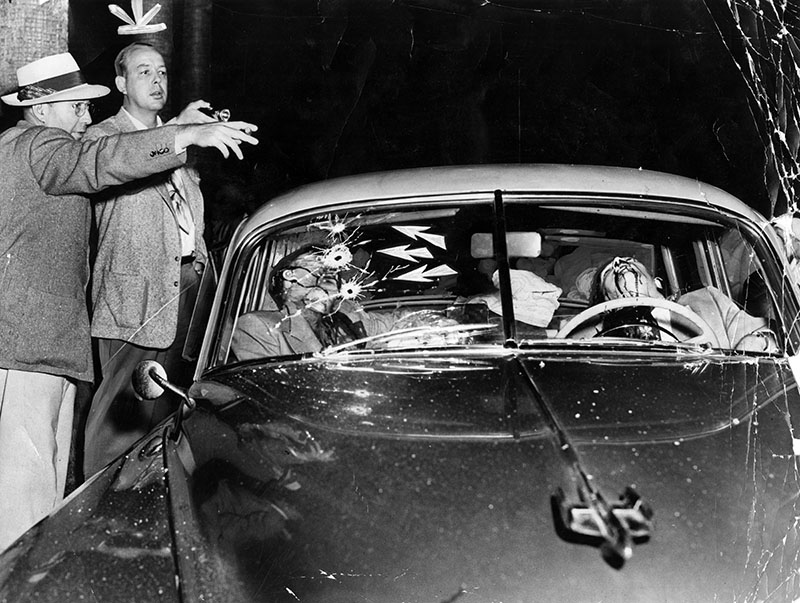
As in the movie, cheating the syndicate in real-life 1950s Los Angeles could lead to a deadly outcome.
Declaring the Two Tonys to be “no good,” L.A. Mafia boss Jack Dragna told Fratianno: “We’ve got to clip them.”
Fratianno was a Mob hit man who later became acting boss in Los Angeles before turning on his former underworld associates and testifying against them.
In August 1951, though, Fratianno carried out Dragna’s grisly command. Fratianno and a nervous, bungling first-time hit man from Buffalo, Charley “Bats” Battaglia, got in the back seat of a car behind the Two Tonys on a street near Hollywood Boulevard and killed the duo with gunshots to the head. Fratianno had coaxed the Two Tonys into the car at 1648 N. Ogden Drive by telling them he knew of a high-stakes card game they could knock over for as much as $40,000.
Though Webb and police officials indicated the movie’s plot was built around a criminal case in the mid-1940s, Lieberman implies that the Two Tonys murders, committed only a few years before the movie was released, influenced the filmmakers. Lieberman points out that on one occasion when Fratianno was at the police station on a different arrest, the mobster said he saw his name on the cover of a movie script.
Authorities could never pin the Two Tonys murders on Fratianno, but even though he skirted justice in this matter, he remained in trouble with the law, finally becoming a protected government witness for a while.
In the meantime, Webb rocketed to even more fame than before, receiving 400 fan letters a week. He kept them on file to track viewer opinions. Though Webb died in 1982 of an apparent heart attack at age 62, his portrayal of the LAPD continues to influence the way crime stories are told in Los Angeles and beyond. He is especially credited for his role in humanizing law enforcement officers.
For some, though, Webb’s cozy relationship with the police department was over the top. At one point, Webb even convinced the department to send a policeman to his Encino residence just off Ventura Boulevard to give technical advice on bugging the home for evidence he could use in his divorce from singer Julie London, according to Lieberman.
Los Angeles cop-turned-author Joseph Wambaugh said he didn’t send a draft of his first novel, The New Centurions, up the chain of command for approval because he had known how the department’s public relations operation red-penciled Webb’s scripts in exchange for the access and favors the star enjoyed. Wambaugh said Webb complained about such censoring but toed the line anyway.
That knowledge was enough to keep Wambaugh, a Marine Corps veteran who was still on the police force when his first novel was published in 1971, from allowing the department’s higher-ups to eyeball his unpublished manuscript.
“I saw what they did to Webb and his scripts,” Wambaugh said, “and I knew damn well they weren’t going to approve even the first 10 pages of my novel, because I was really telling the truth about police work.”
After publishing two more books, Wambaugh left the police force to write full time. It had gotten to the point where criminal suspects in handcuffs were asking for his autograph.
Wambaugh is not the only writer fully aware of Webb’s impact on stories about the L.A. underworld. Popular crime novelist James Ellroy, who has incorporated the Two Tonys murders into his fiction, said Webb’s 1958 book The Badge got him hooked on crime writing in his youth. “He hot-wired me to L.A. crime forever,” Ellroy wrote.
A lot of people are still hot-wired to Webb’s body of work. More than 5,300 fans follow the Jack Webb Archives on Facebook, and long after the actor’s death, the Los Angeles Police Department continues to honor his legacy. Shortly after Webb died, the department “promoted” Joe Friday from sergeant to lieutenant and retired his iconic badge, No. 714.
To this day, the Los Angeles Police Museum website sells a $15 sketch of the actor. Looming over Webb’s shoulder is the famous badge.
In addition, the museum’s annual “Legacy of Service” awards gala is named after Webb. This year’s event is scheduled for September 29 at the Sheraton Universal Hotel. The 2018 honoree is Los Angeles County Sheriff Jim McDonnell. A special guest, actor Kent McCord, also is being recognized. McCord starred in the television police series Adam-12 that aired on NBC from the late ’60s to the mid-’70s.
That show’s co-creator and producer: Jack Webb.
Larry Henry is a veteran print and broadcast journalist. He served as press secretary for Nevada Governor Bob Miller, and was political editor at the Las Vegas Sun and managing editor at KFSM-TV, the CBS affiliate in Northwest Arkansas. Henry taught journalism at Haas Hall Academy in Bentonville, Arkansas, and now is the headmaster at the school’s campus in Rogers, Arkansas. The Mob in Pop Culture blog appears monthly.
Feedback or questions? Email blog@themobmuseum.org

